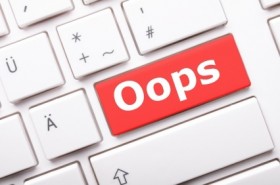Seven top tips for home working to make you more productive and effective. Home working has been talked about for years rather like the paperless office. It takes the COVID-19 virus to turn prophesy into reality. The question is how to be productive and effective whilst working from home and avoid all the surrounding distractions. Not least of which is information and email overload which is something several clients say has escalated out of hand.
At Mesmo Consultancy we have over 30 years experience helping people like you reduce email overload and work from home effectively. Over the coming week we will share our knowledge on both fronts.
Today, we want to share our seven top tips for effective and productive home working.

Effective home working
1.The home desk. Make it as safe and set up as possible to avoid stressing your muscles. We have seen some amazing make-shift desks from ironing boards to wine creates. Click here for some guidelines on the best desk set-up.
2.Stay focused on the task in hand. That means turning off all the new mail and social media alerts.
3.Practice slow email. Agree acceptable response times with colleagues internally and externally. You might have thought this impossible in the past but if ever there was a time to slow down the ridiculous pace of email exchanges it’s now.
4. Maintain your physical well-being. This means setting working time boundaries such as having a proper lunch break and after what time in the evening you stop checking your email etc. Maybe join an on-line gym, meditation, yoga group etc. Click here for more.
5. Limit the number of times you check your trusted news channels. Too much information can be worse than too little. No sooner have you recovered from one wave of bad news than another set knock you back again.
6. Keep talking. Allocate time to talk to colleagues whether through a conference call, text or chat app like what’s app. Ironically, we are hearing people say they are now talking more to colleagues than when they were in the office.
7. Up-skill yourself. Learning is a lifelong exercise. Without colleagues near by to show you how to do things eg set up a rule in Outlook, again this is the time to learn more about all the software you use and maybe some you have never thought about. Click here to see how well you use Outlook.
As we said at the outset, Mesmo Consultancy will be providing a series of tips on effective home working and smart email management including how to use Outlook and other related communications tools. These will be through a free fifteen minute lunch and learn webinar.
For more details (if you are not already on our database receiving our e-briefing) sign-up now. Email us with your name and put E-BRIEFING in the subject-line.
Tags: BourneFit, Home working, Mesmo Consultancy, Slow email, well being
Sadly an email sent is rarely if ever deleted. There is always someone somewhere who will have kept a copy and produce it just when you least expected.
Yes, in Outlook you can recall an email. However as soon as one sees that recall message I defy anyone not to be tempted to open the offending email!
Here are a few recent email scandals where the sender is probably bitterly regretting they ever sent the original email.

Email regrets
There is nothing new about emails you wish you had never sent. It is that somehow we never seem to learn good email etiquette and that email sent, is an email kept for life. Within everyday business you can take three easy steps to reduce the risk of creating an email scandal.
1. Resist hitting Reply All – check who is in the To and CC address box and make sure you are sending it to the right people.
2. Think and re-read your email before hitting send. Ask yourself what if this turned up on the wrong person’s desk?
3. Practice the art of ‘slow email’. Write a rule to put every email into a holding pattern before it leaves your inbox.
For more suggestions see Mesmo Consultancy video on how the manage the risks of cyber crime and leaking confidential information.
How do you have a preferred way to manage these risks to ensure you have no regrets about the emails you send?
Tags: email etiquette, email scandals, Mesmo Consultancy, Recall email, Slow email
 The English language is complicated enough for those who did not learn Latin at school. Spell and grammar checkers are hailed as tools of the digital age which should make our lives easier. However, they are useless at picking up on the errors generated by using Homonyms. These are words which sound the same but are spelt differently. Here are some examples.
The English language is complicated enough for those who did not learn Latin at school. Spell and grammar checkers are hailed as tools of the digital age which should make our lives easier. However, they are useless at picking up on the errors generated by using Homonyms. These are words which sound the same but are spelt differently. Here are some examples.
How often have you said you will arrange a meeting in mourning (for whom) when naturally you mean the morning? Certainly as one who struggles with mild dyslexia I have made many errors despite emails being be read on screen and paper and spell checked.
As if this is not enough, there are the Homophones, those words which sound and are spelt the same but have different meanings. These are so well illustrated by Lynne Truss’s book ‘ Eats Shoots and Leaves’. Surely a must for anyone who is either a grammar pedant or cares about their email etiquette. One of my favourite Homophones is ‘Rose’. For example:
Are we planting a rose before our partner rose from bed because they drank too much rose coloured wine last night?
There have been several articles recently about the importance of grammar in business and some have suggested that better grammar is linked to how high you climb the corporate greasy pole.
What is clear from Mesmo Consultancy’s studies is that grammatically correct emails help reduce email overload because they convey the right message right first time. Additionally, good email etiquette as in good grammar conveys a professional image and most importantly make it easy for the recipient to know what is being asked of them.
Next time before hitting send, pause, take the slow email approach and re-read before hitting send. Make sure the human touch pervades over the arrogance of the spell checker.
This is an edited extract from my new book Taking Control of Your Inbox due out in late November. Watch this space for more news.
Tags: Dr Monica E. Seeley, email etiquette, email overload, Executive Secretary, Grammar, Lynne Truss, Mesmo Consultancy, Slow email, Taking Control of Your Inbox
Michael Einstein of Email Overload Solutions recently wrote about listening properly before replying. For us at Mesmo Consultancy this so resonated with all we say about think before hitting send we wanted to share it with you (and for which he gave us permission).
Listening is a critical part of communication. It is an activity many people take for granted yet perform quite poorly. Active listening can help greatly improve your communication with others.
It is very easy to “hear” but can be very difficult to actually “listen”. Have you ever found yourself planning a response to someone before they even finished speaking?
Has listening just become a game of waiting for the time for when someone stops speaking so that you can start talking yourself? This is where active listening can be improve your communication abilities. Stephen R. Covey, author of “The 7 Habits of Highly Effective People: Powerful Lessons in Personal Change”, wisely said:
“Most people do not listen with the intent to understand; they listen with the intent to reply”.
How many time have you hit send before you have really read and thought through what the sender is saying? Here are Mesmo Consultancy’s top five tips to improve your email listening and communication skills.

Email listening
Click here to check your personal email etiquette. For more help on listening well to improve business email communications contact us about our Brilliant Email workshops and masterclasses.
Tags: Business email communications, email communications, email etiquette, Listening, Michael Einstein, Quiet Email, Quite email, Slow email

Email etiquette for reputation and brand preservation
What can we learn from the Sony hacking 2014 saga? First and foremost no one is immune from cyber crime, regardless of the technology you put in place. Second is just how nasty, vengeful and determined are today’s hackers. Third, nothing is confidential once committed to email.
It is not just the scale of the attack (possibly costing Sony up to $200M) and the stealing of corporate confidential data which should be ringing alarm bells.
It is all the in-fighting and bickering which the leaked emails disclosed which should be raising the fire alarm in every CEOs ears (regardless of the business’s size and sector).
Why is that email seduces us into committing vituperative words to the archives? We would never put them down on pen and paper and if we did they would most probably be shredded before they were ever sent.
Perhaps one reason is the 24 x 7 x 365 world in which we live and the feeling that we must either respond and say what’s on our mind regardless of what might happen to these words. Equally email does not have the tactile sense of permanency of paper. Although that might change now with such a high profile hacking incident.
What lessons can lesser mortals and smaller businesses learn from such a malicious attack? From the email perspective here are my key learning points.
We have helped many clients prevent emails wars. For a free consultation on how we can help you and your organisation reduce the risk of damaging your brand and professional reputation please contact us by email or phone us now.
Tags: business email etiquette, cyber crime, Quite email, Slow email, Sony hacking 2014, Sony hacking scandal